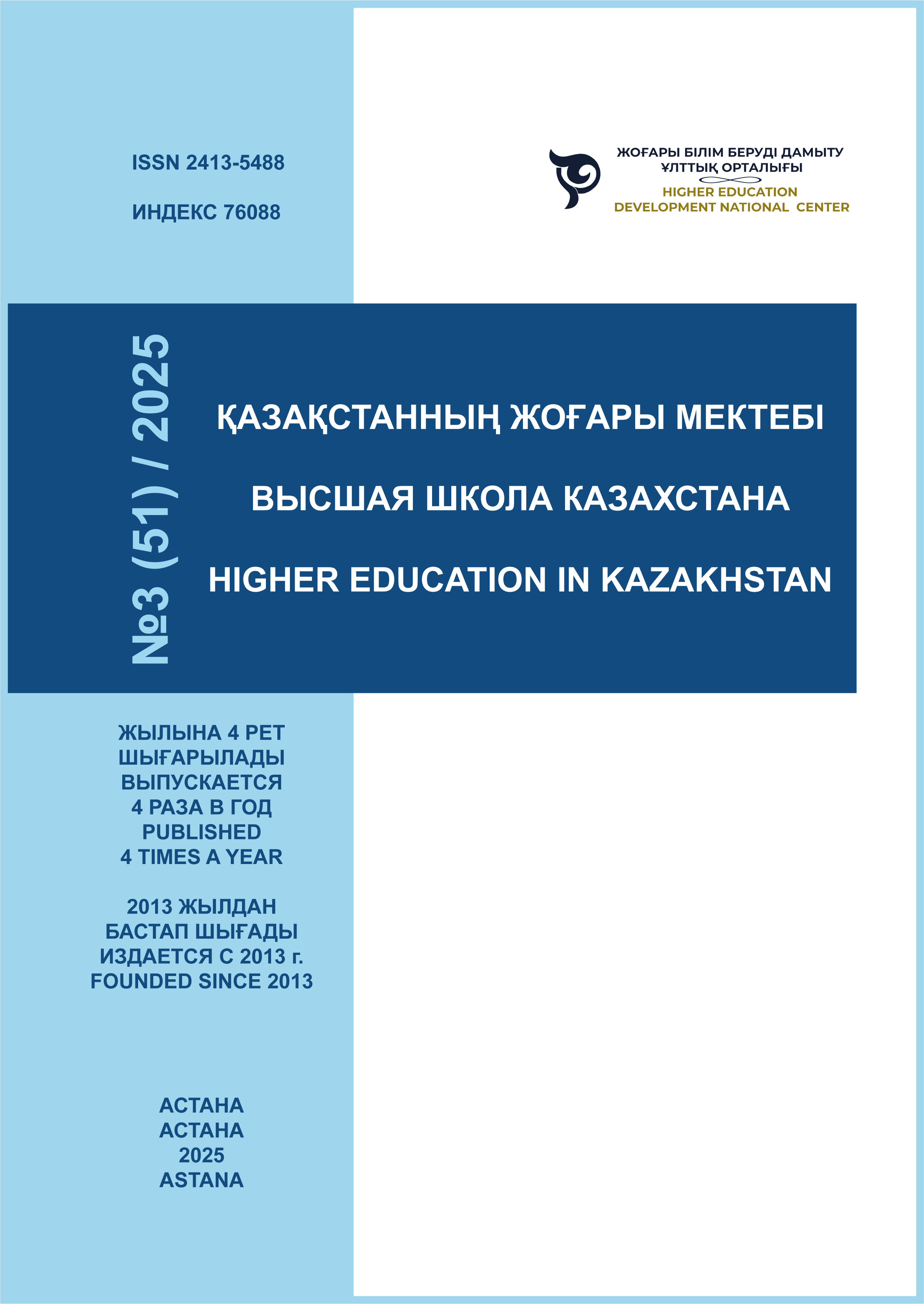THE EFFECT OF GAMIFICATION IN EDUCATION: THE META-ANALYSIS OF THE IMPACT OF IMPLEMENTATION ON STUDENT ENGAGEMENT AND LEARNING OUTCOMES
DOI:
https://doi.org/10.59787/2413-5488-2025-51-3-131-142Ключевые слова:
gamification; instructional design; education; curriculum; engagement; outcomeАннотация
This meta-analysis study examines the effectiveness of gamification in educational contexts at different academic levels and different areas of academic subjects. By the semantic review of 26 empirical and experimental research published between 2010 – 2024 years, covering 12,456 participants. The research investigates the effects of gamification elements on student learning outcomes, engagement, and motivation. Results that obtained, indicate a significant positive effect of gamification on student learning achievement (g=0,682, p < 0,001) and engagement (g = 0,724, p < 0,001). According to the investigation certain gamification elements, particularly points, badges, and leaderboards, demonstrate varying effectiveness degrees in educational contexts. The study results provide valuable insights for instructional designers and educators implementing gamification strategies in education
Библиографические ссылки
Alomari, I., Al-Samarrai, H., & Yousef, R. (2022). The role of gamification techniques in promoting student learning: A review and synthesis. Educational Technology Research and Development , 70(4), pp.1453-1487. https://doi.org/10.28945/4417
Alsawaier, R. S. (2023). The Impact of Gamification on Motivation and Engagement. International Journal of Information and Learning Technologies , 40(1), pp.1-13. https://doi.org/10.1108/IJILT-02-2017-0009
Antonacci, A., Klemke, R. & Specht, M. (2021). The effects of gamification in online learning environments: A systematic literature review. Computers & Education , 165, pp.104-161. https://doi.org/10.3390/informatics6030032
Bai, S., Hew, K. F., & Huang, B. (2022). Does gamification improve student learning outcomes? Evidence from a meta-analysis and synthesis of qualitative data in educational contexts. Review of Educational Research , 34, p.100414. https://doi.org/10.1016/j.edurev.2020.100322
Chen, Y., Burton, T., Michaela, V. and Whittinghill, D.M. (2021). Cogent: A case study of meaningful gamification in education using virtual currency. International Journal of New Technologies in Learning , 16(3), pp.93-110. http://dx.doi.org/10.3991/ijet.v10i1.4247
Deterding, S., Sicart, M., Nacke, L., O'Hara, K., & Dixon, D. (2021). Gamification: Using game design elements in non-game contexts. CHI Extended Abstracts on Human Factors in Computing Systems , pp. 2425-2428. https://doi.org/10.1145/1979742.1979575
Dehghanzadeh, H., Farrokhnia, M., Dehghanzadeh, H., Taghipour, K., & Noroozi, O. (2024). Using gamification to support learning in K‐12 education: A systematic literature review. British Journal of Educational Technology, 55(1), 34-70. https://doi.org/10.1111/bjet.13335
Ferriz-Valero, A., Østerlie, O., García Martínez, S., & García-Jaén, M. (2020). Gamification in physical education: Evaluation of impact on motivation and academic performance within higher education. International journal of environmental research and public health, 17(12), 4465. https://doi.org/10.3390/ijerph17124465
Gao, F. (2024). Advancing gamification research and practice with three underexplored ideas in self-determination theory. TechTrends, 68(4), 661-671. https://doi.org/10.1007/s11528-024-00968-9
Garcia-Sanjuan, F., Jurdi, S., Jaen, J., & Nacher, V. (2018). Evaluating a tactile and a tangible multi-tablet gamified quiz system for collaborative learning in primary education. Computers & Education, 123, 65-84. https://doi.org/10.1016/j.compedu.2018.04.011
Hassan, M. A., Habiba, U., Majeed, F., & Shoaib, M. (2021). Adaptive gamification in e-learning based on students’ learning styles. Interactive Learning Environments, 29(4), 545-565.
Khaldi, A., Bouzidi, R., & Nader, F. (2023). Gamification of e-learning in higher education: a systematic literature review. Smart Learning Environments, 10(1), 10. https://doi.org/10.1186/s40561-023-00227-z
Koivisto, J., & Hamari, J. (2023). The rise of motivational information systems: A review of gamification research. International Journal of Information Management , 45, pp. 191–210. https://doi.org/10.1016/j.ijinfomgt.2018.10.013
Landers, R. N., Tondello, G. F., Kappen, D. L., Colmus, A. B., Meckler, E. D. & Nacke, L. E. (2021). Defining game experience as a psychological state induced by playing a game: Replacing the term “gameness” with three different constructs. International Journal of Human-Computer Studies , 127, 81-94. https://doi.org/10.1016/j.ijhcs.2018.08.003
Lampropoulos, G., Keramopoulos, E., Diamantaras, K., & Evangelidis, G. (2022). Augmented reality and gamification in education: A systematic literature review of research, applications, and empirical studies. Applied sciences, 12(13), 6809. https://doi.org/10.3390/app12136809
Manzano-Leon, A., Camacho-Lazarraga, P., Guerrero, M.A., Guerrero-Puerta, L., Aguilar-Parra, J.M., Trigueros, R., & Alias, A. (2021). Between leveling up and game over: A systematic review of the literature on gamification in education. Sustainable Development , 13(4), pp. 2247. https://doi.org/10.3390/su13042247
Page, M. J., McKenzie, J. E., Bossuyt, P. M., Boutron, I., Hoffmann, T. C., Mulrow, C. D., ... and Moher, D. (2021). PRISMA statement 2020: updated guidance for reporting systematic reviews. BMJ , P. 372. https://doi.org/10.1136/bmj.n71
Sailer, M., & Homner, L. (2023). Gamification of learning: A meta-analysis. Educational Psychology Review , 32(1), pp. 77-112. https://doi.org/10.1007/s10648-019-09498-w
Stevens, M. W., Dorstyn, D., Delfabbro, P. H., & King, D. L. (2021). Global prevalence of gaming disorder: A systematic review and meta-analysis. Australian & New Zealand Journal of Psychiatry, 55(6), 553-568. https://doi.org/10.1177/0004867420962851
Lester, D., Skulmoski, G. J., Fisher, D. P., Mehrotra, V., Lim, I., Lang, A., & Keogh, J. W. (2023). Drivers and barriers to the utilisation of gamification and game‐based learning in universities: A systematic review of educators' perspectives. British Journal of Educational Technology, 54(6), pp. 1748-1770. https://doi.org/10.1111/bjet.13311
Schöbel, S. M., Janson, A., & Söllner, M. (2020). Capturing the complexity of gamification elements: a holistic approach for analysing existing and deriving novel gamification designs. European Journal of Information Systems, 29(6), 641-668. https://doi.org/10.1080/0960085X.2020.1796531
Tang, S., & Hanneghan, M. (2014). Designing educational games: a pedagogical approach. In Gamification for human factors integration: Social, education, and psychological issues (pp. 181-198). IGI Global. DOI: 10.4018/978-1-4666-5071-8.ch011
Wang, A. I., & Tahir, R. (2020). The effect of using Kahoot! for learning–A literature review. Computers & Education, 149, 103818. https://doi.org/10.1016/j.compedu.2020.103818
Zainuddin, Z., Chu, S. K. W., Shujahat, M., & Perera, C. J. (2020). The impact of gamification on learning and instruction: A systematic review of empirical evidence. Educational research review, 30, 100326. https://doi.org/10.1016/j.edurev.2020.100326
Zou, D., Huang, Y., & Xie, H. (2021). Digital game-based vocabulary learning: where are we and where are we going?. Computer Assisted Language Learning, 34(5-6), 751-777. https://doi.org/10.1080/09588221.2019.1640745
Zhang, J., Jiang, Q., Zhang, W., Kang, L., Lowry, P. B., & Zhang, X. (2023). Explaining the outcomes of social gamification: A longitudinal field experiment. Journal of Management Information Systems, 40(2), 401-439. https://doi.org/10.1080/07421222.2023.2196776

Загрузки
Опубликован
Выпуск
Раздел
Лицензия
Copyright (c) 2025 Научно-аналитический журнал "Высшая школа Казахстана"

Это произведение доступно по лицензии Creative Commons «Attribution-NonCommercial» («Атрибуция — Некоммерческое использование») 4.0 Всемирная.













